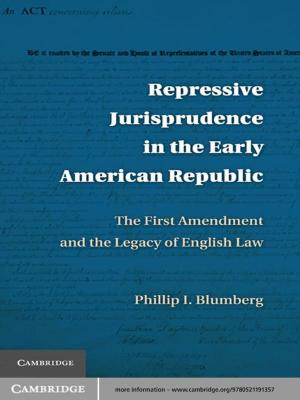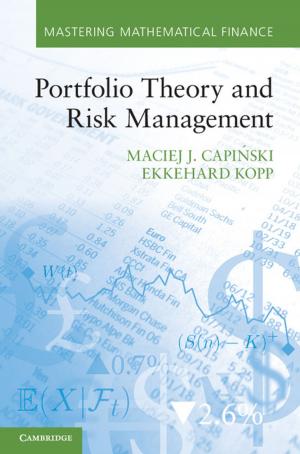Trade Secrets and Employee Mobility: Volume 44
In Search of an Equilibrium
Nonfiction, Reference & Language, Law, Intellectual Property, Business & Finance| Author: | Magdalena Kolasa | ISBN: | 9781108335928 |
| Publisher: | Cambridge University Press | Publication: | February 8, 2018 |
| Imprint: | Cambridge University Press | Language: | English |
| Author: | Magdalena Kolasa |
| ISBN: | 9781108335928 |
| Publisher: | Cambridge University Press |
| Publication: | February 8, 2018 |
| Imprint: | Cambridge University Press |
| Language: | English |
In the increasingly knowledge- and innovation-based economy in which the mobility of the workforce is vital, employees and ex-employees are considered to be one of the biggest threats to the existence of trade secrets. The interests of the former parties to the employment relationship are contradictory: employers want to safeguard their competitive position by limiting use of information, and employees want to use that information to pursue their professional career. Magdalena Kolasa analyses existing guidelines that determine the extent to which former employees may use information learned during service. She proposes criteria for a balanced enforcement of trade secrets, discussing the statutory and implicit confidentiality duties, contractual protection, and remedies. Drawing from the laws of Germany, UK, and USA, and considering the EU Trade Secrets Directive, this book advocates an approach which recognises the value and functions of trade secrecy both within companies and in the context of public policy.
In the increasingly knowledge- and innovation-based economy in which the mobility of the workforce is vital, employees and ex-employees are considered to be one of the biggest threats to the existence of trade secrets. The interests of the former parties to the employment relationship are contradictory: employers want to safeguard their competitive position by limiting use of information, and employees want to use that information to pursue their professional career. Magdalena Kolasa analyses existing guidelines that determine the extent to which former employees may use information learned during service. She proposes criteria for a balanced enforcement of trade secrets, discussing the statutory and implicit confidentiality duties, contractual protection, and remedies. Drawing from the laws of Germany, UK, and USA, and considering the EU Trade Secrets Directive, this book advocates an approach which recognises the value and functions of trade secrecy both within companies and in the context of public policy.















